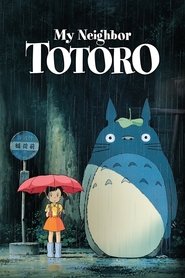A pastoral, pantheist chamber drama.
Totoro inspired a movement to maintain local forests and waterways and a surge of interest in the sustainable satoyama model of farming. The beginning of any reading of Totoro, however, must be that Miyazaki was not raised in the countryside. Animators who had been, like Hideo Ogata, were critical of the film’s depiction of rural Saitama: ten-year-old Satsuki and her younger sister, Mei, run around bare-limbed, as though the woods are free of biting insects.
— Lucy Jakub (New York Review of Books)
Totoro possesses autonomy and independence. He’s not a plaything, and he’s not imaginary […]. Even at his most endearing[,] Totoro never attempts to communicate with his human peers or ask them anything about themselves. The few words he says, including his own name, come out in a low, guttural rumble. His trademark refrain is a yawn. […] Many of the shots resemble still-life paintings, except they’re never really still, like the butterfly that circles lazily around Mei and Totoro during their nap—a 10-second cameo that feels like a benediction.I’ll never forget taking [my daughter] Lea to a screening […] last year when—to my embarrassment and horror—I realized too late that the film was being presented in a subtitled version. Nobody else in the theater was under 10, but Lea, who was 5 at the time, sat happily ignoring the subtitles. She knew the sentences by heart, and, as she told me quietly under her breath as the lights went down, “the words don’t really matter.” As the film went on, frame after gorgeous frame, forest paths extending in all directions beneath swaying trees and cloudless skies, I realized not only that I couldn’t have said it better myself, but also that I didn’t need to. Some movies demand our eloquence; the greatest ones transcend it.
— Adam Nayman (The Ringer)
Synopsis: Two sisters move to the country with their father in order to be closer to their hospitalized mother, and discover the surrounding trees are inhabited by Totoros, magical spirits of the forest. When the youngest runs away from home, the older sister seeks help from the spirits to find her.

